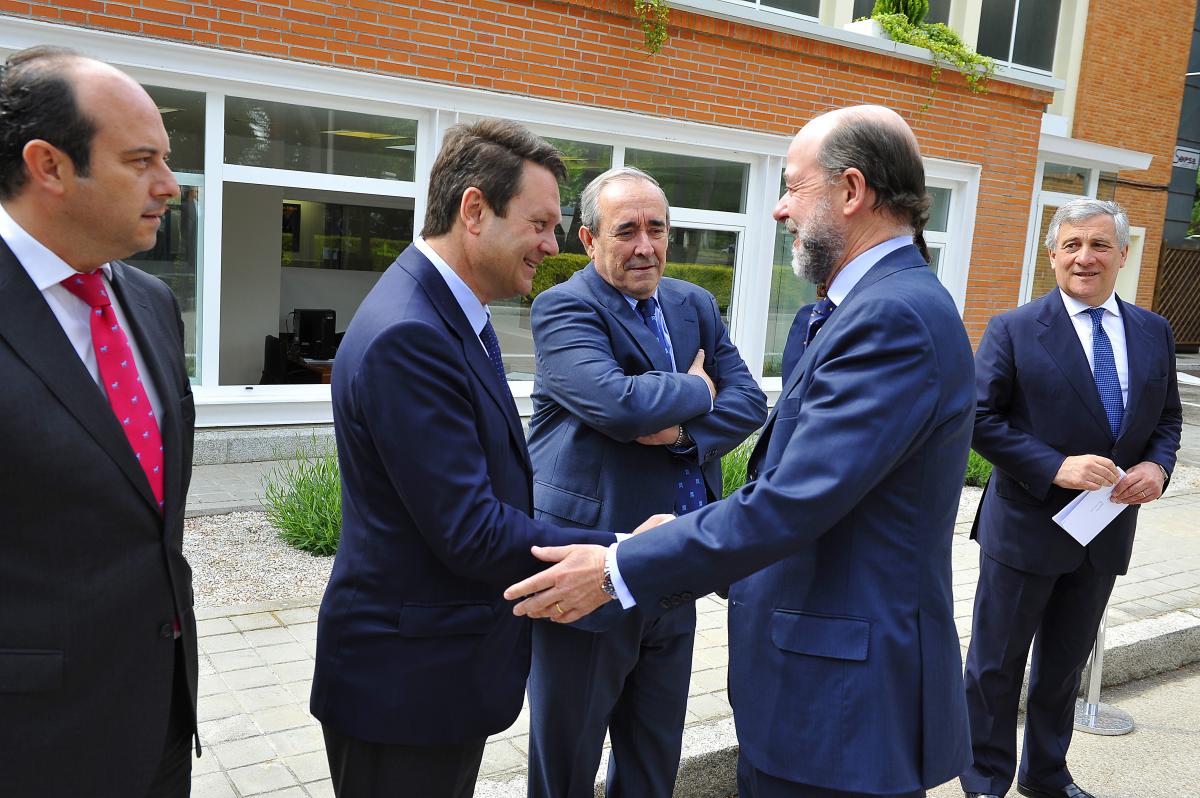On the 14th of May 2013, Antonio Tajani, the Vice- President of the European Commission, responsible for enterprise and industry policy, and Ana Pastor, Spanish Minister of Transport, inaugurated the European GNSS Service Centre in the Loyola de Palacio building in Spain.
A large number of officials were present for the inauguration of the new GNSS Service Centre in Torrejón de Ardoz, Madrid, within the National Institute of Aerospace Technology (INTA) facilities, namely the Executive Director of the European GNSS Agency (GSA), Carlo des Dorides, the Spanish Secretary of Defense, Pedro Argüelles as well as representatives from the aerospace sector.
The European GNSS Service Centre (GSC), is operated by the European GNSS Agency (GSA), and will primarily act as an interface between the Galileo navigation system and user communities of the open and commercial services provided by Galileo.
Vice- President Tajani emphasized that “the inauguration of the European GNSS Service Centre today, is an additional tool and part of our strategy for the development of GNSS applications, supporting innovation within industry and supporting SMEs across Europe.”
"Galileo is the first navigation satellite system under civiian control and it will provide Europe with technological independence in relation to present navigation systems, while at the same time being fully interoperable and compatible with them” stated minister Ana Pastor, who also recalled that in sectors such as transport, agriculture, energy, banking and fishing, these technologies are regularly used.
Carlo des Dorides declared, “This marks another step in our dedication to support entrepreneurs and companies to develop their activities thanks to European Satellite Navigation data.”
Access to satellite data has very practical applications
 The GSC will provide information on the status of the Galileo constellation to end-users or application service providers, as part of a general support function to ensure they can maintain the provision of any products or services they have constructed on the basis of the data flow.
The GSC will provide information on the status of the Galileo constellation to end-users or application service providers, as part of a general support function to ensure they can maintain the provision of any products or services they have constructed on the basis of the data flow.
Data provided by Galileo satellites, once the system is fully operational, will be used in a wide number of areas, for example to avoid car crashes, help visually and motor impaired people navigate, transport dangerous goods, survey costal water depth and intelligent salt-spreading during the winter.
Galileo moving forward
During the Galileo In-Orbit Validation (IOV) phase, the GSC operates a general Helpdesk function. An upgrade will be developed to support Early Services provision by the end of 2014 with additional content and functionalities.
By mid-2015 a new version of the GSC will be ready to support the dissemination of commercial data through a real-time interface.
The GSC will continue to evolve over time in order to become fully functional in support of the Galileo Full Operational Capability (FOC) services.
The EU and Spain working together for the development of the GSC
The center named as a tribute to the previous Vice President of the European Commission and Commissioner for Transport is "a proof of the vision of the future of Loyola de Palacio and will have a strong impact on improving the economy and everyday life” said for Ana Pastor.
The service center involves an investment of around 34 million euro. Spain financed around €4m for the preliminary study and construction of the building, while the EU is funding the additional €30m necessary to engineer and outfit the center.
A dedicated website www.gsc-europa.eu is available to efficiently and promptly react to Galileo users’ needs. This proves the GSA’s continuing involvement in Galileo.